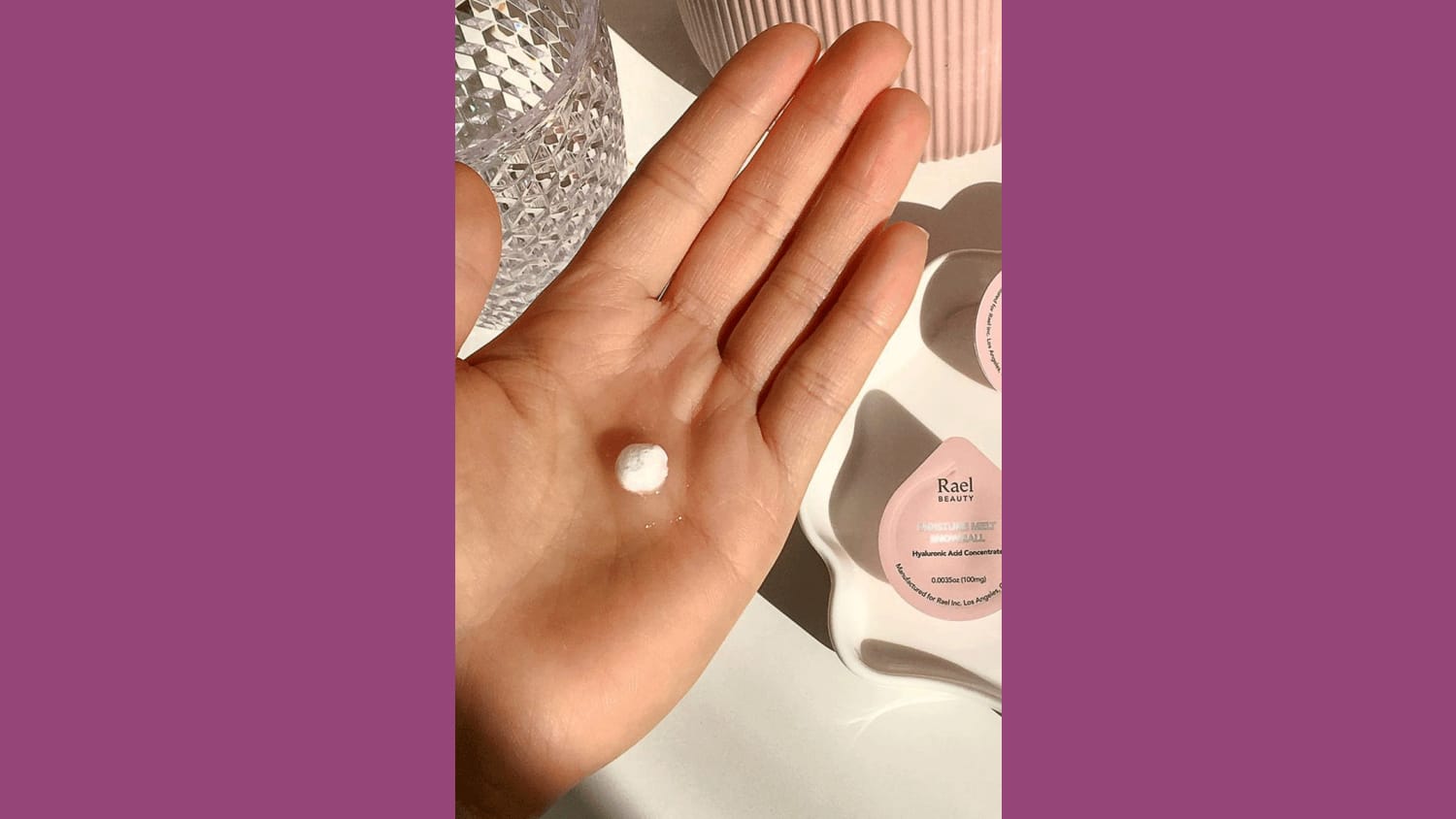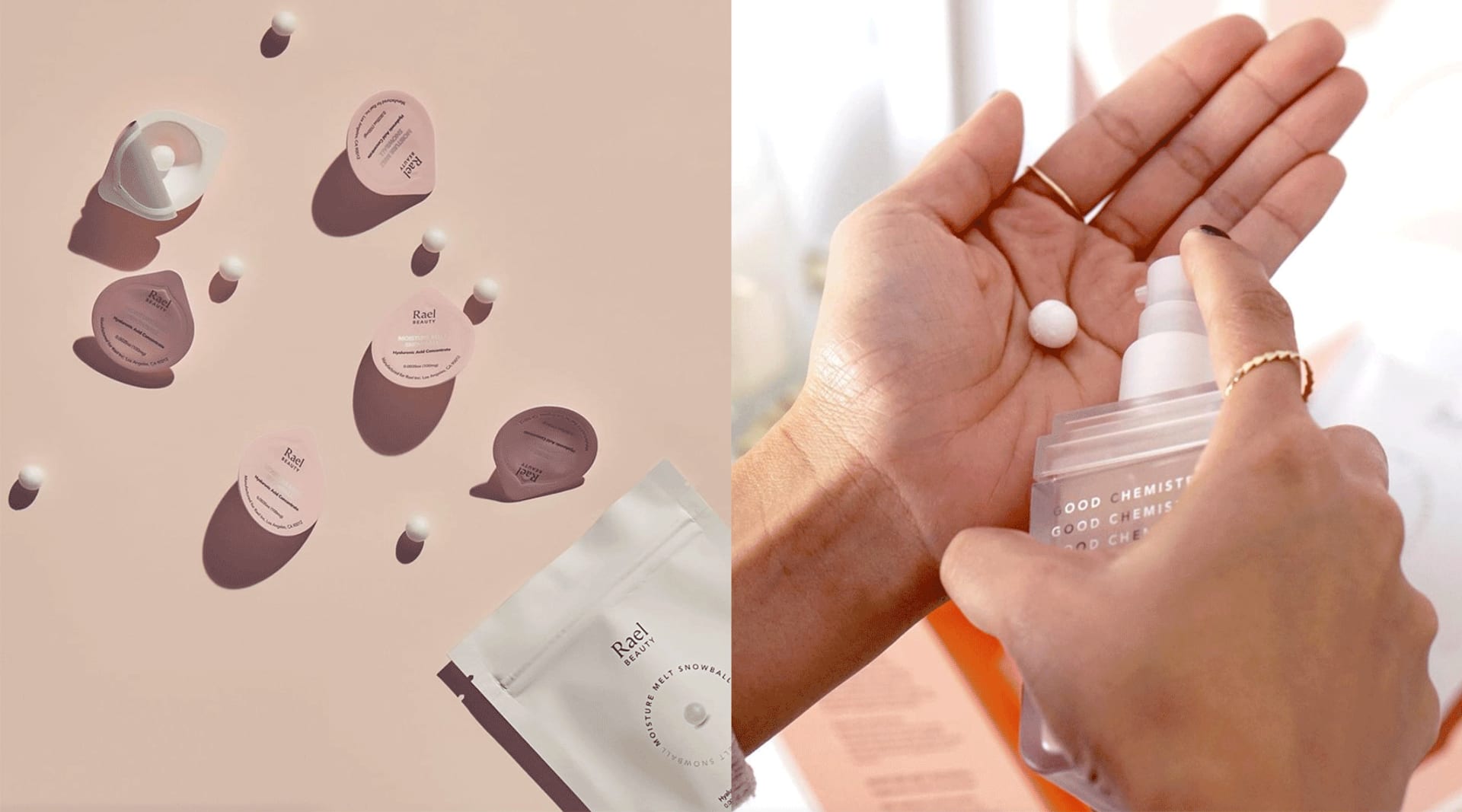For years, freeze-drying was a popular technique used to preserve nutrients and extend the shelf-life of food including astronaut fare. Now, beauty brands and cosmetic researchers are utilizing the method to boost the potency and sustainability of a variety of skincare products for the latest iteration of waterless beauty.
Science and sustainability go hand-in-hand for the latest iteration of waterless beauty.
In January 2021, luxury Korean brand Saro de Rúe released its Freeze-Dried Hyaluronic Acid Anti-Aging System with a serum, providing hydration that lasts a purported 72 hours. The same month, Beijing-based biotech company Weibo Hi-Tech Cosmetics, which manufactures products for brands like L’Oreal and Unilever, released a set of 15 products created with “Freeze-drying (FD) and Flash Release Technology.” The serums, face masks and eye mask are meant to be blended with water before use, Weibo Hi-Tech said.
“Anhydrous (dehydrated) active ingredients have a lower molecular weight, so the molecules can penetrate deeper into the epidermis,” Dr. Rachel Ho, a Singapore-based aesthetic doctor, told Wunderman Thompson Intelligence. “The main challenge for these waterless products is to prove that they work as well as conventional beauty products—and that really boils down to formulations with active ingredients in appropriate concentrations.”
Freeze-drying is a slow dehydration process at a low temperature, freezing an element and removing all moisture so that when it reaches room temperature, it is completely dry. Popular for its use in preserving food in space or producing crispy fruit snacks, freeze-drying naturally creates a long-lasting product, as there is little to no water for bacteria to multiply and thus, no need for preservatives. This can reduce the risk of skin allergies and cuts down on a product’s carbon footprint, as product ingredients can be transported in vacuum-sealed bags rather than liquid containers.


The popularity of freeze-dried skincare is expanding globally. In 2020, Los Angeles-based brand Rael, which makes organic sanitary pads and skincare for periods, launched its Moisture Melt Snowball: a freeze-dried hyaluronic acid concentrate in tablet form that transforms into a liquid moisturizer when added to a serum or essence.

Research-centric skincare brand Acaderma, based in San Francisco, freeze-dries a variety of under-utilized plants for their skincare benefits, such as the anti-inflammatory, redness-reducing West African kinkeliba or hyperpigmentation-fighting mulberry root. The company, founded in 2018 by chemist Dr. Shuting Hu, applies their academic research to develop serums, cleansers and toners that rely solely on the botanical benefits of their ingredients.
Freeze-dried ingredients are also turning up in supplements. Australian brand Vmores, launched in 2019, uses the process to retain the nutrients of yogurt and grape skin, amongst others, within their chewy vitamin supplements for hair, skin, and nails.
With consumers increasingly invested in researching their skincare—whether for efficacy or sustainability—freeze-dried beauty offers users direct agency over their products. Says Dr. Ho: “Freeze-dried skincare literally gives patients an avenue to be involved in the process of building their skincare routine.”
Related content:
- Waterless beauty
- Wild-harvested ingredients
- Skintellectuals, trend #54 in “The Future 100: 2020“
Please provide your contact information to continue.
Related Content

The Toronto Public Library Foundation Taps VML

